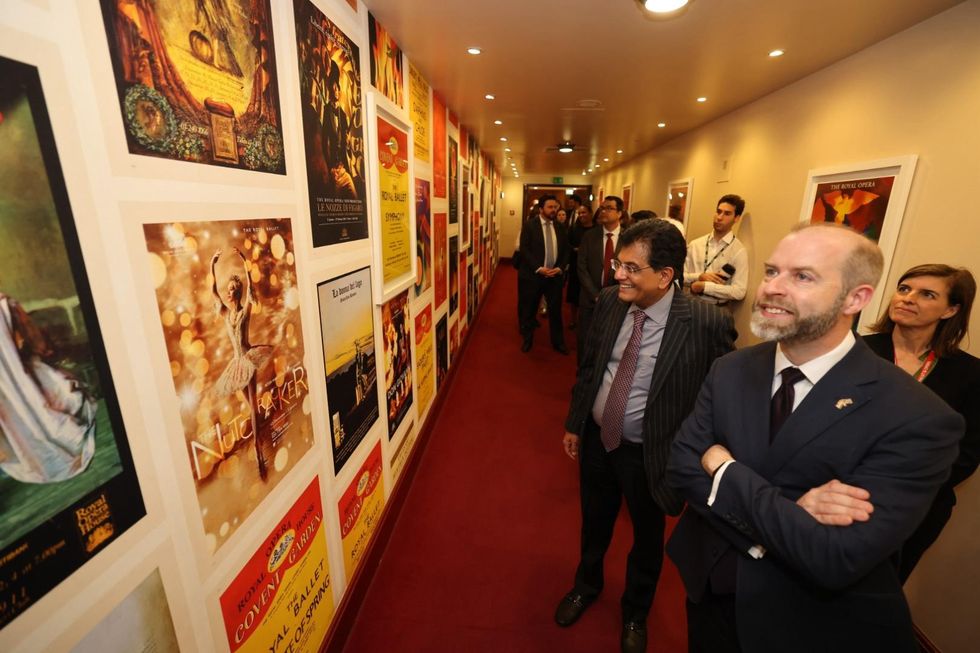Representatives of the Jain and Zoroastrian will now join 15 other faiths, including Hinduism, Sikhism, at Britain's annual war memorial service to make it more reflective of modern Britain, Faith Minister Lord Bourne announced on Wednesday.
Hinduism, Sikhism, Islam, Christianity and Judaism are among the faiths already represented at the National Remembrance Service held at the Cenotaph in central London on November 11 every year, to commemorate British and Commonwealth soldiers who died in the two World Wars and later conflicts.
"For a tiny faith community, the Zoroastrians have punched well above their weight and contributed immensely to Britain in both World Wars," said Malcolm M Deboo, President of Zoroastrian Trust Funds of Europe, welcoming the move.
"At the outbreak of the First World War, thousands volunteered from Britain and India to serve as soldiers and doctors and many were decorated for their bravery and sacrifice.
Sadly, many also lost their lives and a Zoroastrian War Memorial was erected in their memory in South Bombay in 1926 where they are remembered annually," he said.
Among the well-known Zoroastrians in the war efforts was Colonel Phirozshah Byramji Bharucha of the 14th Ferozepore Sikhs Regiment, who was also the first Indian to be awarded the Distinguished Service Order.
"The loss of the lives of Zoroastrian servicemen in World War I also came at great cost to the faith, which relies on the male line to continue the faith, from which it never fully recovered," notes the UK's Communities Ministry.
In reference to the Jain faith, it adds: "Although the Jain faith focuses on non-violence, the Jain community has a long history of serving in the military, including Britain's armed forces.
"For Jains, it is their duty to stand up to tyranny and violence to bring peace. Jains have been an active force in both World Wars."
The National Remembrance Ceremony is led by Queen Elizabeth and involves official wreaths being laid on the steps of the Cenotaph by political and religious leaders on November 11 - Armistice Day that marked the end of World War I in 1918.
The list of faith representatives who will join the service from this year was expanded following an open nomination process, run by Faiths Forum for London.
"One hundred years ago, men and women of all faiths and beliefs made huge sacrifices for our freedom in the First World War," said Lord Bourne.
"It's absolutely right as a modern, multi-faith society that we step up our efforts to honour those people of other faiths for their contribution. It's because of their bravery and selflessness that we are afforded the privileges and luxuries we enjoy today. Their sacrifices should be honoured through the ages," he said.
The UK government said the addition of several smaller faith communities, also including Coptic Christians, Mormons, Baha'is, Spiritualists and Humanists, will reflect the significant but little-known contribution made by minority ethnic communities to Britain's war efforts.
"It also sends a strong signal throughout Britain and the world that this country values the contribution of its diverse communities," a government statement said.
The faiths and beliefs selected have a link to Britain's Armed Forces and their inclusion is aimed at ensuring that the UK's National Remembrance Service is "truly reflective" of the diverse faiths and beliefs in the country.
The service has changed little since it was first introduced in 1921, and involves hymns, prayers and a two-minute silence. The ceremony ends with a march past of war veterans as a gesture of respect for their fallen comrades.
















 Piyush Goyal and Jonathan Reynolds tour the Royal Opera House in London
Piyush Goyal and Jonathan Reynolds tour the Royal Opera House in London

